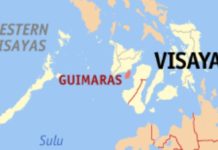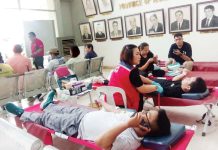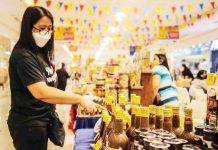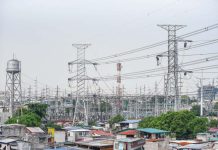[av_one_full first min_height=” vertical_alignment=” space=” custom_margin=” margin=’0px’ padding=’0px’ border=” border_color=” radius=’0px’ background_color=” src=” background_position=’top left’ background_repeat=’no-repeat’ animation=”]
[av_heading heading=’WV organic producers’ org partners with DA, NEDA ‘ tag=’h3′ style=’blockquote modern-quote’ size=” subheading_active=’subheading_below’ subheading_size=’15’ padding=’10’ color=” custom_font=”]
By Eunice Sheene Fulgencio
[/av_heading]
[av_textblock size=” font_color=” color=”]
ILOILO City – The Panay Organic Producers Association (POPA), in cooperation with the Department of Agriculture (DA) and the National Economic Development Authority (NEDA) Region 6, hosted the 1st Agri-Aqua Forum themed “Grow Western Visayas: Accelerating Investments for Global Markets” yesterday at the Diversion 21 Hotel, Benigno Aquino Avenue, Mandurriao.
The forum, which aims to bring together national and international stockholders who are inclined to invest on the agriculture and fisheries livelihood in Iloilo and its neighboring provinces, featured the region’s prime export products such as cacao, coffee, poultry and mango in an exhibit also located in the forum.
DA secretary Emmanuel Piñol presented the department’s major objectives and key strategies for the program which include increasing the income of both farmers and fisherfolks; increasing the resilience of the crops to climate change; providing an easy access financing program for farmer, fisherfolks, and agricultural and fisheries stockholders going into new business ventures; and establishing an effective and strategic post-harvest storage and processing facility.
“The Department of Agriculture must go back to its basic mandate and that is to produce food for this nation,” Piñol added.
POPA president Ricardo Palmares also spoke about his high hopes that the two-day forum will inspire new investors. He likewise thanked the association’s partnering organizations who made the event possible.
Ro-Ann Bacal, regional director of NEDA-6, gave an overview of the region’s current situation with the agricultural and aquatic sectors and talked about the issues present such as weak local and national plan integration among planning units and partnering institutions; unsuitable programs and projects by national government agencies that do not address the needs of the intended beneficiaries; and a lack of sufficient data on agriculture and fisheries for an in-depth analysis in planning and investment programming.
On what actions should be taken as soon as possible, Bacal said “private sectors must decide on which crops to focus on, create a movement to increase production, treat agricultural and fisheries as business ventures improve on systems and procedures and develop a brand for these sectors.”
“Meanwhile, the government should support the priority commodities of the private sector, promote and cluster farms for ease in provision and connect networks with institutional markets,” she added.
The forum also featured sessions where entrepreneurs and company CEOs talked about their products./PN
[/av_textblock]
[/av_one_full]







